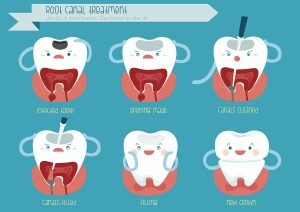Common Symptoms of Gum Disease

Gum disease can lead to a variety of problems, including pain, tooth loss, and even heart and respiratory illnesses. If you experience the symptoms of gum disease, it is important to consult with your family dentist in St. Charles as soon as possible. The longer gum disease progresses untreated, the more damage it can do. Be alert to these symptoms and discuss them with your dentist if they occur.
Bleeding Gums
Bleeding gums are one of the earliest signs of gum disease. Gums bleed when an infection causes swelling and tenderness that is exacerbated by brushing and flossing. Although a single instance of bleeding gums may not be a cause for concern, your dentist should evaluate repeated gum bleeding. Oftentimes, when this symptom appears, gum disease is in its early stages—during this time, gum disease may be reversible simply by brushing and flossing more regularly or making other changes to your oral hygiene routine.
Changes in the Appearance of Gums
You may be able to see the presence of gum disease by simply looking at your gums. In addition to looking swollen and irritated, your gums may begin to recede, which can cause tooth sensitivity as more of the tooth roots are exposed. Pockets may develop along the gum line where the gums pull away from the teeth. In some cases, sores may also appear on the gums because of the infection. These changes can all signify that your gum disease has become serious and that you require family dental care as soon as possible to prevent the worsening of your symptoms.
Changes in Your Bite
In advanced stages, gum disease can cause loss of bone in your jaw. It can also lead to tooth loss. Both of these things can change your bite and the way your teeth fit together. Your dentist may need to perform tooth extractions to remove damaged teeth and may suggest dental implants after your gum disease is under control to replace any missing teeth.
